Wequiock Creek
Restoring &
Protecting
From development to restoration: protecting our heritage.
Until recently, most of the land around Wequiock Creek was slated for housing development. Now, through a partnership with the Northeast Wisconsin Land Trust and the Town of Scott, we're dedicated to restoring and protecting this vital land. As an ancestral homeland for First Nations and a crucial part of the Point au Sable wetlands located less than half a mile downstream, Wequiock Creek is essential to our community. Our long-term goal is to establish a natural mosaic of Midwestern oak savanna, riparian woodland and shallow wetlands. The result? A biodiverse refuge that preserves the region’s unique cultural and natural history.
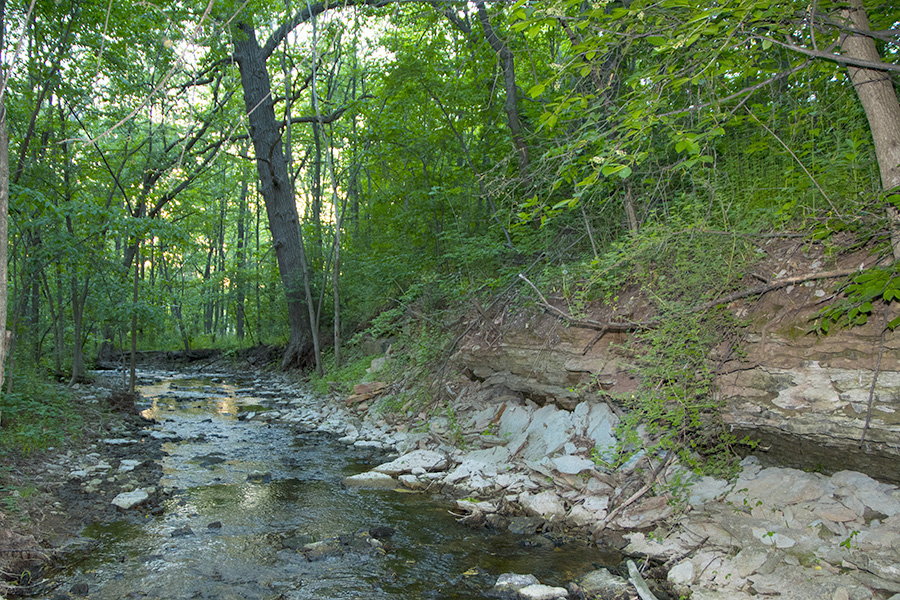
Public Access
Wequiock Creek Natural Area is located just upstream of the Point au Sable Natural Area, along Nicolet Drive, and about a mile down stream from Wequiock Falls County Park.
Parking
A parking area is located at the end of Circle Ridge Road. The driveway on the north side of the creek is meant for University and contractor access only.
Hiking
Hiking is allowed on trails. Bicycles and motorized vehicles are prohibited.
Honoring Our First Nations Heritage and Land
Ho-Chunk Nation and Menominee Nation both hold ancestral land claims deriving from creation stories that take place along the banks of Green Bay. Potawatomi nations also have settlements in the the area that have been documented by archaeologists. This land also holds value to Oneida people who have since settled in the Green Bay area.
Honoring the history, ancestry and ongoing relationship with this place is an important component of the restoration work. We're working with area First Nations to ensure cultural sensitivity is respected, honored and valued as we conduct ecological restoration work. Practices include:
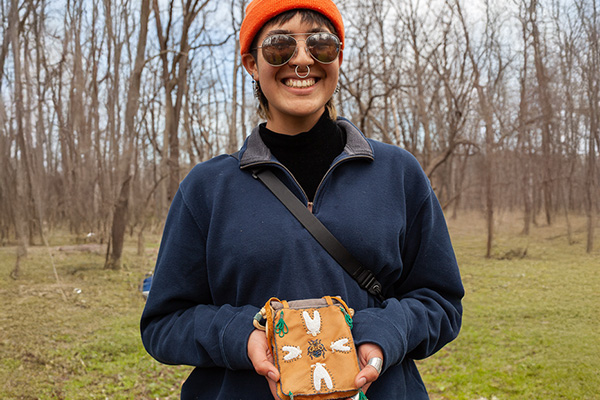
Annual Tobacco Blessing
It's customary with many Indigenous cultures to offer tobacco prior to disturbing the land and/or water. The event is honored with a water song and other longhouse songs from local students and words from local Elders, along with a prayer for the work that will take place in the year to come.
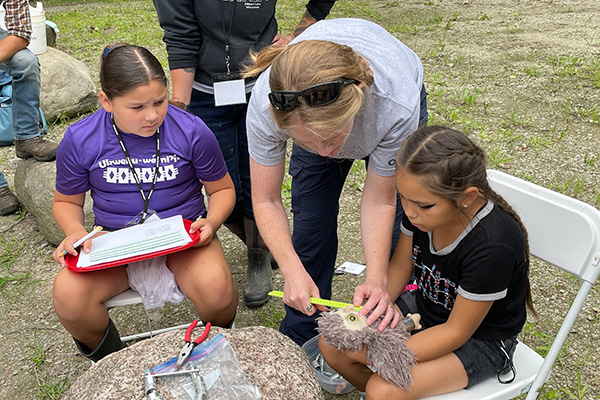
Building Relationships with Native Youth
More than 35 Native youth engaged in learning about the area by touring and assisting with archaeological research.
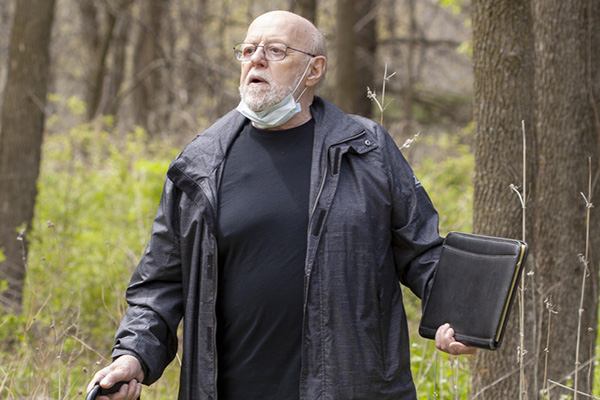
Consulting with First Nations Experts
UW-Green Bay is consulting with archaeologist Dr. David Overstreet and as many representatives from First Nations who have an interest as we can.
Looking to the Future
Land acknowledgement is not just a one-and-done proclamation; it's ongoing action. Our goal is to strengthen our relationship with First Nations communities through listening, supporting access to the land and incorporating indigenous perspectives and practices into our land management efforts. Interested in other First Nations activity at UW-Green Bay?
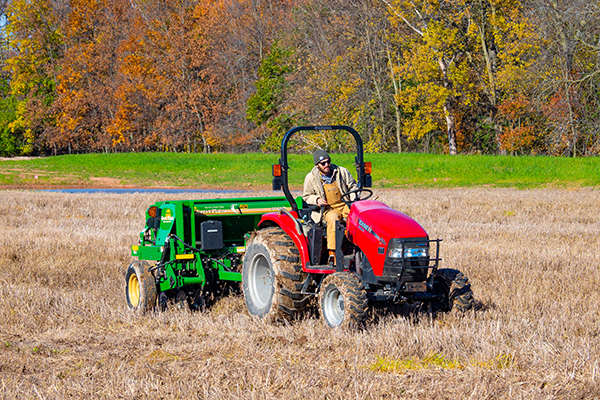
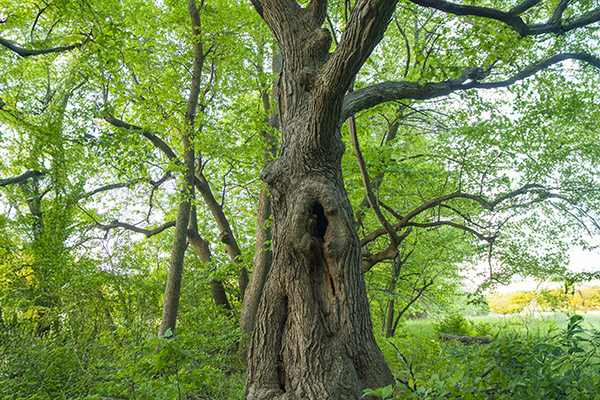
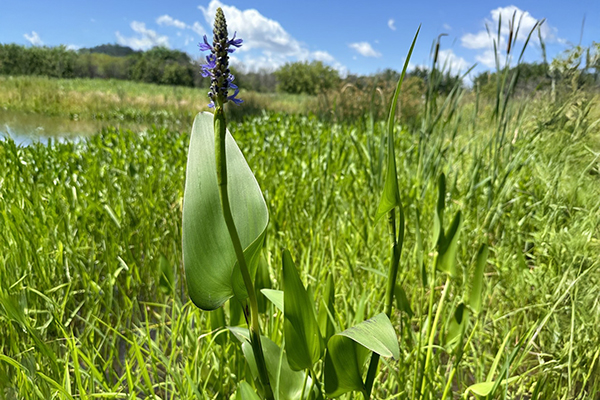
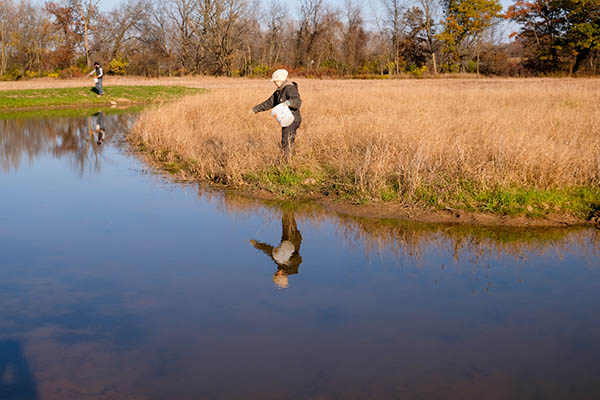
Restoration
Achievements
Wequiock Creek is an important habitat for a diverse suite of plant species and is home to at least 5 bat species (2 state-threatened and 1 state-special concern), 8 bumble bee species including the federally endangered rusty patched bumble bee (Bombus affinis), 51 bird species and 13 mammal species. Our restoration achievements include:
- 2 archaeological assessments
- 4 wetland scrapes (1.5 acres) installed
- 36 acres of prairie installed in the old fields
- 22 large oak saplings installed throughout the prairie planting
- 40 acres treated for woody invasive species
- 76 acres treated for herbaceous invasive species
- 5,500 native trees & shrubs planted
- Created pollinator hot spots via installation of ~25,000 plant plugs
A Range of Environments
Wequiock Creek is a land of protection, including just under a half-mile of unique stream corridor that meanders freely within a relatively undisturbed floodplain. It represents a range of environments in just 76 acres.
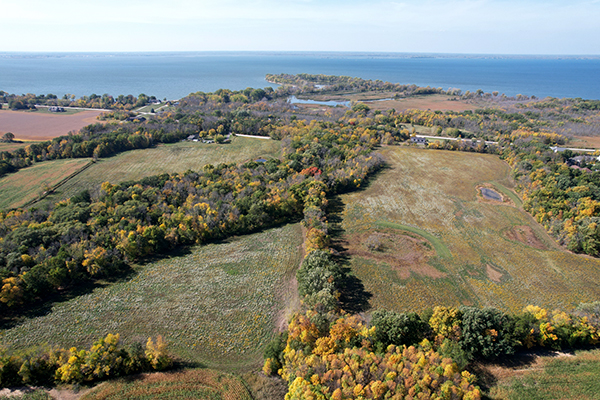
Grassland Community
The upland area is former agricultural fields currently being converted to a grassland community. This is the beginning stage of restoring this area to an oak savanna community, remnants of which occur along the edges of these fields.
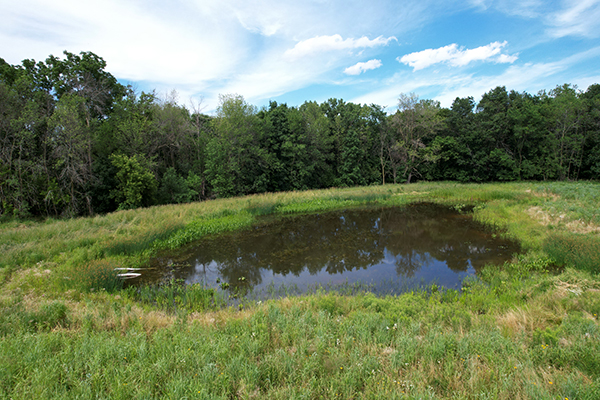
Wetlands
Three small, naturally occurring wetlands are located in one of the fields north of Wequiock Creek. The intact floodplain wetlands located along the creek are a nationally declining wetland type, known as palustrine forested wetlands. This area is dominated by green ash, American elm, basswood, box elder, black maple and other hardwoods.
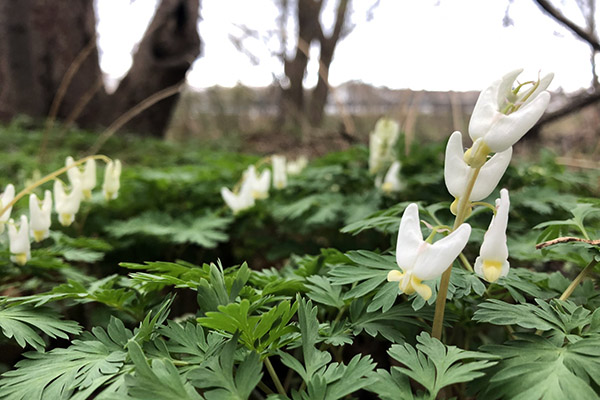
Upland & Riparian Forest
Some of this forest contains a high quality understory plant community, including an assemblage of spring ephemerals, plants that complete their life cycle before forest overstory trees are fully leafed out. These spring ephemeral plants provide vital food source for bees and other insects because they're some of the first plants to bloom in spring.
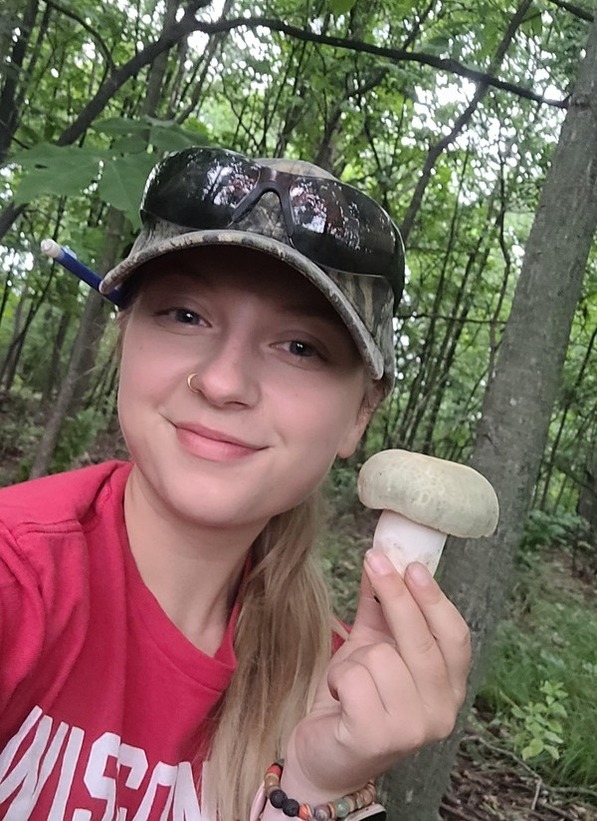
Meet a
Phoenix
"The UW-Green Bay natural areas have helped me with learning about different plant species, both native and invasive species, along with research and management opportunities. I have done fungal research associated with oak trees at Wequiock Creek Natural Area and learned about different plant ecosystems... working on the Natural Areas Crew, we have done restoration efforts on prairies, wetlands, and woodlands on these properties."
Haillee Fritsch '24
Land Management Technician
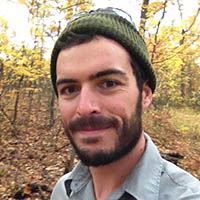
Ask an Expert
Meet Andrew LaPlant, UW-Green Bay alum and Natural Areas Manager. In addition to leading ecological restoration efforts, he also facilitates outdoor classroom experiences for students. If you have questions about Wequiock Creek, he can help!